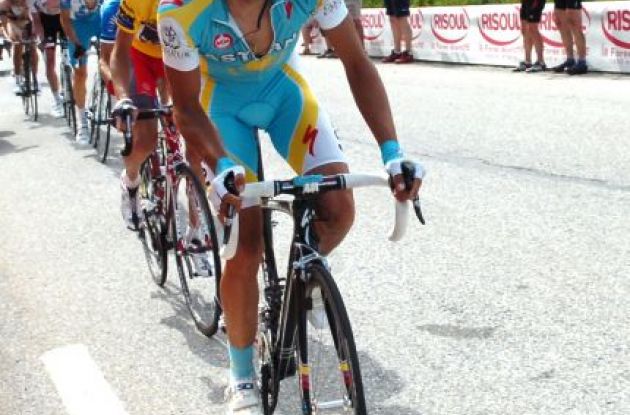Alberto Contador Says Anti-Doping Rules 'Stuck in the '60s'
Alberto Contador says a proposed one-year ban is the result of anti-doping rules "stuck in the '60s."
Alberto Contador says his proposed one-year ban is a result of anti-doping rules "stuck in the '60s."
The Spaniard could lose his 2010 Tour de France title and be left off the starting line in July for failing a doping test at last year's race.
Spanish cycling authorities accept Contador's explanation that he unintentionally ingested clenbuterol by eating contaminated meat and have tentatively ruled he should banned but not for the usual two years.
The three-time Tour de France champion has vowed to appeal any doping sanction and has until Wednesday to submit further evidence to the Spanish cycling federation's disciplinary committee before it reaches a final verdict.
"Today, advances in science are able to detect minute amounts of some banned substances which neither further athletic performance nor can possibly be taken voluntarily, except if they enter our bodies through ingested food - this is my case with clenbuterol," Contador said Friday in a statement posted on his website. "But whereas scientific advances have arrived in the year 2011, the rule remains stuck in the '60s, hence my 'crime' and possible sanction."
Contador called the initial one-year ban "shameful" and said the episode has left him feeling like a "victim of the system."
"The rules governing elite sports nowadays detail a list of substances that are taken by some athletes to improve performance, leaving the rest of the competitors at a disadvantage, and one of those substances is clenbuterol," Contador said. "Only by combining scientific advances with modifications to the anti-doping rules will it be possible to talk about honest and fair sport, as I have always practiced it."
The Spanish cycling federation's final verdict can be appealed to the Court of Arbitration for Sport by Contador, the International Cycling Union or the World Anti-Doping Agency.








